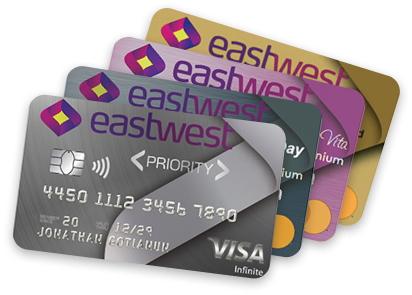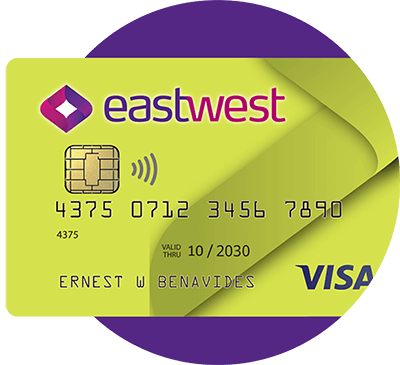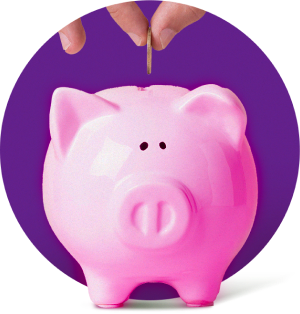For many Filipinos, earning enough to live comfortably is a significant financial milestone. Whether it's covering bills without worry, enjoying occasional treats, or providing more for the family, this stability signals success. But what happens after you achieve it? Often, money disappears as quickly as it comes in. This isn't always due to poor decisions; sometimes, it's simply a result of spending habits subtly shifting as income rises.
This gradual shift is known as lifestyle inflation. It occurs when new or additional income isn't directed toward long-term goals like savings, investments, or debt reduction but instead funds a more expensive way of living. Common manifestations include eating out more often, buying pricier goods, or engaging in lavish home upgrades. While these changes may feel deserved and harmless, they can limit your financial growth over time.
This article will help you recognize if lifestyle inflation is creeping into your finances and what to do about it before it hinders your lasting financial security.
When a Pay Raise Leads to Higher Spending
A clear sign of lifestyle creep is when a salary increase is almost immediately followed by increased spending. You might find yourself opting for name-brand groceries, choosing more expensive leisure activities, or upgrading electronics—not out of necessity, but because your higher income feels like a justification. This pattern might seem harmless, but it can prevent genuine financial progress despite increased earnings.
Instead of viewing a pay raise as a license to spend more, see it as an opportunity to increase your savings rate, pay off debt faster, or build an emergency fund. When spending rises at the same rate as income, you're not moving forward; you're simply resetting your financial baseline to a more expensive lifestyle that can be difficult to maintain long-term.
Feeling Pressure to Match Other People’s Lifestyles
Social pressure can also drive lifestyle inflation. Seeing friends or coworkers post vacation photos, wear the latest fashion, or drive new vehicles can influence your spending decisions. This pressure to "keep up" may lead to purchases aimed solely at maintaining a certain image or status, effectively shifting your financial priorities.
Decisions like joining more expensive social events or upgrading your wardrobe may seem minor, but they add up quickly. Spending excessive time and resources to impress others or fit in can divert your focus from your own financial goals. If you're spending more because others are, rather than because it aligns with your needs or values, it's a clear sign of lifestyle creep taking root.
Ignoring the Gradual Shift from Luxuries to Necessities
One of the subtler signs of lifestyle inflation is when items that once felt like luxuries start to feel like every day needs. Perhaps restaurant dining was once for special occasions but is now a twice-weekly routine. Or your occasional online shopping has become regular monthly hauls. Be wary: when spending patterns shift, your idea of what's "normal" also evolves.
This change happens gradually, making it hard to notice until you reflect. When spending increases are no longer questioned because they've become routine, lifestyle inflation becomes dangerous. Reassess your baseline and distinguish between genuine needs and habits that quietly drain your budget. A good start is simply asking yourself if money spent on a non-essential purchase would be better allocated toward savings or investments.
Instead of spending extra on "just because" purchases, explore savings or investment options that offer long-term benefits. For instance, EastWest’s Unit Investment Trust Funds (UITFs) are excellent if you're new to investing and want expert fund management for a hassle-free experience.
Meanwhile, EastWest’s fixed income products let you grow your money with competitive rates and high earnings through either corporate bonds or government securities. Investing in these and other investment products can build lasting financial stability, a stark contrast to spending on temporary comforts that don't contribute to the bigger picture.
Saving Less Despite Earning More
An income increase should improve your financial position. If your savings don't rise alongside it, something may be off. Lifestyle inflation often absorbs raises and bonuses, leaving your emergency fund, retirement savings, or investment goals stagnant. This imbalance can delay long-term security even with higher earnings.
If you're not setting aside a larger percentage of your income despite a bigger paycheck, it's likely your spending has kept pace with or exceeded your earnings. Remember that financial health is less about how much you make and more about what you do with it. Don't let lifestyle creep undermine good financial habits. A growing income should strengthen, not weaken, your ability to build wealth.
Dropping Out of Budgeting
Many wrongly assume budgeting is only necessary when money is tight. But abandoning your budget simply because you're earning more is one of the easiest ways to let lifestyle inflation take hold. Without a plan, it's easy to overspend in ways that feel harmless but accumulate over time.
Sticking to a budget is key to staying aligned with your goals. It provides structure for your choices and helps ensure lifestyle upgrades are intentional rather than automatic. If you've stopped checking your finances because you feel "comfortable," that comfort might be disguising unhealthy spending patterns that limit your financial growth.
No Longer Tracking Purchases or Account Balances
Losing the habit of regularly checking your spending is another sign that lifestyle inflation might be creeping in. When you earned less, you likely paid close attention to every transaction, considering its value. But as income grows, it's common to become more relaxed, sometimes neglecting financial oversight entirely.
Not tracking purchases allows impulse buys and overlooked subscriptions to slowly eat into your earnings. Without monitoring, you lose the ability to make informed adjustments. Staying engaged with your finances is crucial for managing lifestyle inflation and making conscious spending decisions that support your goals.
Feeling Unconcerned about Prices
When your financial situation improves, it's natural to feel less stressed about prices. But when this shifts into indifference and complacency, you might be slipping into lifestyle inflation. Telling yourself "I can afford it" can lead to frequent, impulsive purchases with little long-term value.
This mindset often causes you to ignore better deals or skip financial planning. Just because you think you can afford it, you may start prioritizing convenience or prestige over genuine need, which chips away at the benefits of your income growth. Being mindful of what you buy—and why—is essential to avoiding this trap.
Accumulating Debt Even with a Larger Paycheck
A pay raise should offer more opportunities for financial stability and freedom. If you find yourself falling into debt despite a higher income, it's time to reevaluate your situation. If your paycheck is larger than ever, but you're still relying on credit cards or loans to maintain your lifestyle, something is out of balance. This likely means spending has considerably outpaced your income growth.
This can create a false sense of financial security, where you believe higher earnings will eventually catch up with growing debt. But without habit changes, debt can build faster than you can repay it. Recognizing this disconnect early is crucial to regaining control and avoiding long-term financial setbacks.
While lifestyle inflation isn't inherently wrong, becoming too comfortable with spending a little more here and there can easily lead to financial trouble. It's perfectly acceptable and even expected to enjoy an upgraded lifestyle with higher earnings, but the problem arises when lifestyle gains outpace financial planning.
Make an effort to continue reviewing your spending habits and prioritizing savings and investments with each paycheck. Aim to stay aware of your financial standing so you can continue nurturing sound money habits that will ensure your future financial security. Peace of mind, after all, comes not from how much you earn but from how intentionally you use your money. Keep your goals in sight, and lifestyle upgrades can become part of a healthy plan, not a hidden setback.
Apply for EastWest Credit Card?
With a variety of options to suit different needs, EastWest Bank offers competitive rates, valuable rewards, and excellent customer service.









